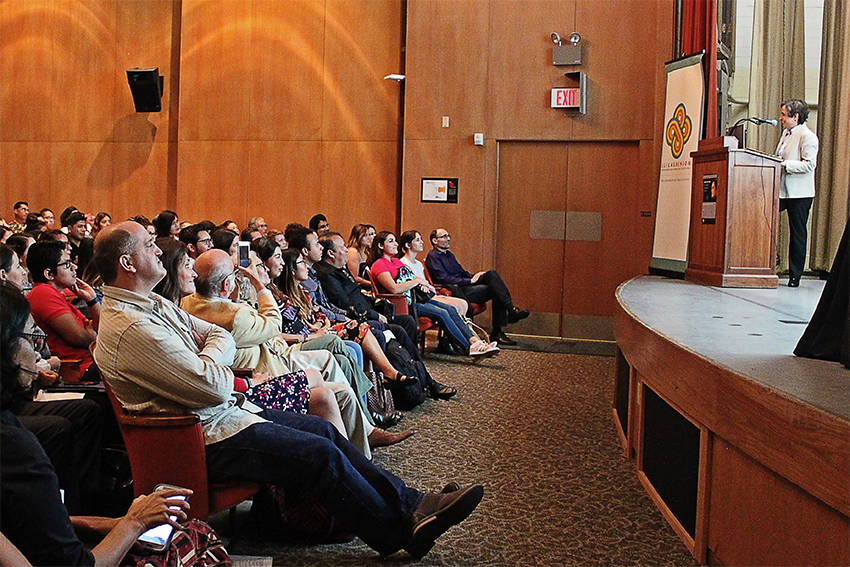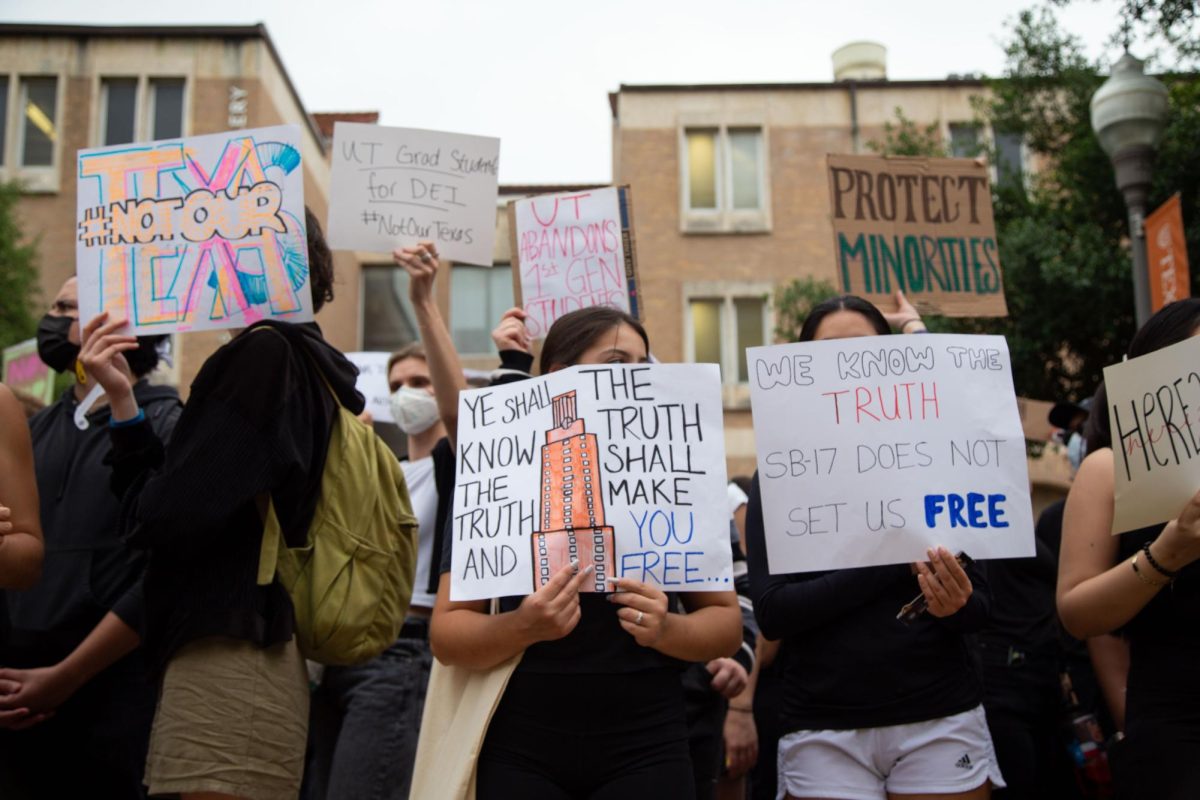Carmen Aristegui, Mexican journalist and anchor of the news program “Aristegui on CNN en Español,” discussed democracy and freedom in Mexico Tuesday at the Union Theatre.
Aristegui explained the timeline of political transition in Mexico, pointing out the corruption of politicians. Aristegui also criticized the government’s incapability in dealing with the 43 missing students in Mexico and the severe censorship that undermines the freedom of press.
“Organizations like Freedom House are classifying Mexico with a ‘not free’ status,” Aristegui said. “Freedom of expression cannot be exercised fully for many reasons, because they will shoot the journalists … or take the journalists away from their space for one or another reason … or use other effective tools that generate more than censorship: self-censorship.”
Following the speech was a panel discussion led by Gabriela Polit, associate professor in the department of Spanish and Portuguese, Ariel Dulitzky, clinical professor in the School of Law and Fatima Valdivia, Latin American studies graduate student.
Aristegui said she received a lot of pressure from the government after she revealed the corruption of current Mexican president Enrique Peña Nieto. When answering a question from Valdivia about how she went through the harassment and lawsuits brought to her because of her investigatory report, Aristegui said she had no idea how to stop government censorship, but that journalists need to have a community to defend themselves and need to keep an ongoing discussion.
Aristegui said journalists must have a lawyer to defend themselves.
“There’s not a journalist that can withstand, economically, what it means to have so many litigations at the same time,” Aristegui said.
The lecture consisted of more than 300 audience members and was entirely in Spanish with an English translation.
Levi Romano, an art and entertainment technologies freshman from Mexico, said he was inspired by Aristegui’s speech.
“All the graphs she showed constantly shows that Mexico is corrupt,” Romano said. “I can see Mexico is a third-world country that wants to get better, but it’s not gonna get better if we have the guy on top corrupting.”
Armando Romano, Levi’s father who also grew up in Mexico, said he does not see any changes in Mexico now compared to when he was there.
“When I lived in Mexico … I was young,” Romano said. “There was corruption, corruption. [America] is different. If I go any places here, I feel security, I feel free, and I think young people [are] the key [to change in Mexico].”





















